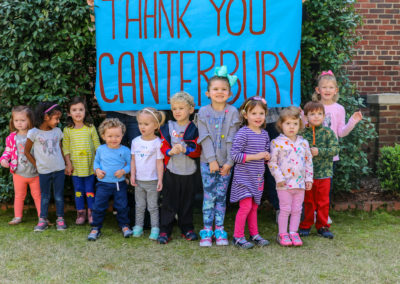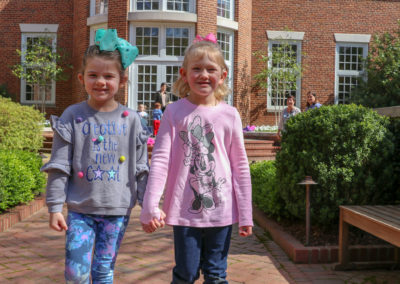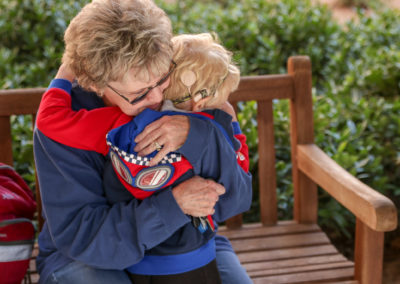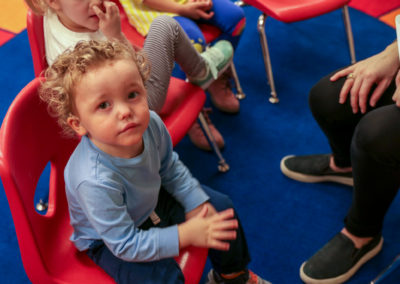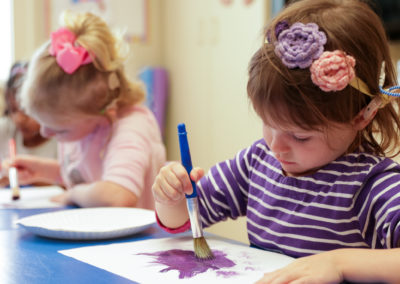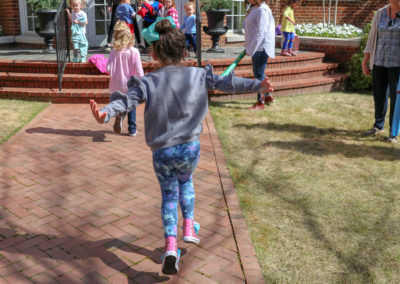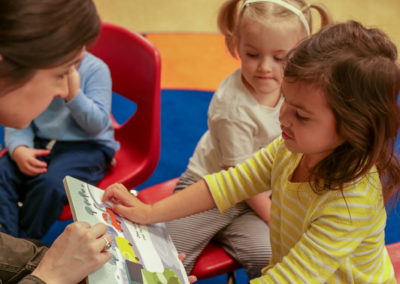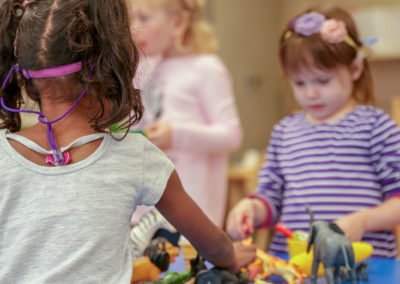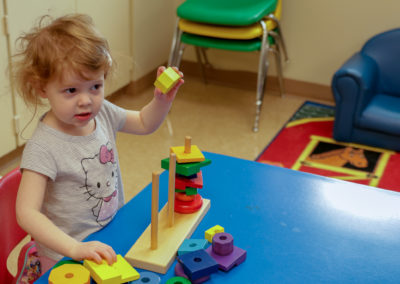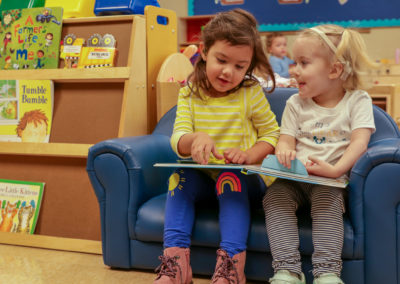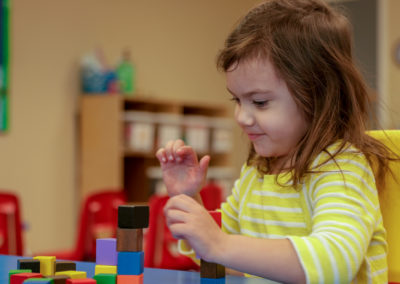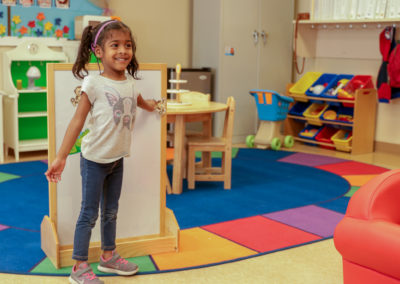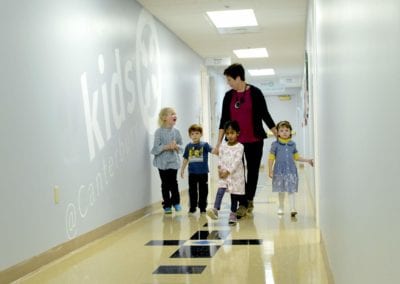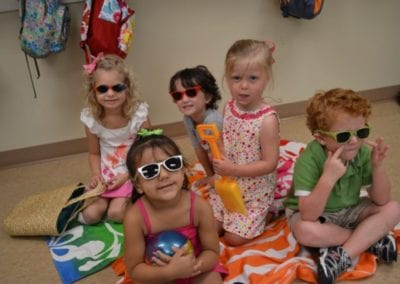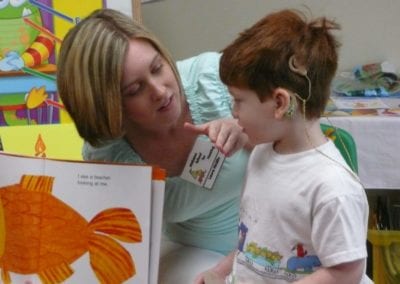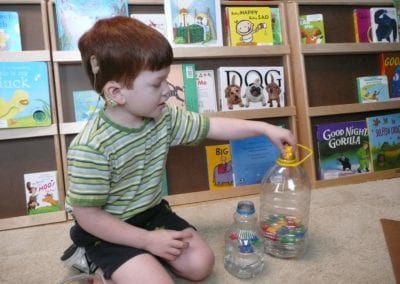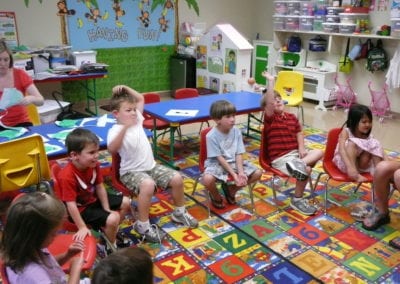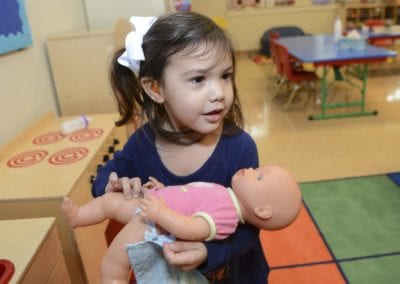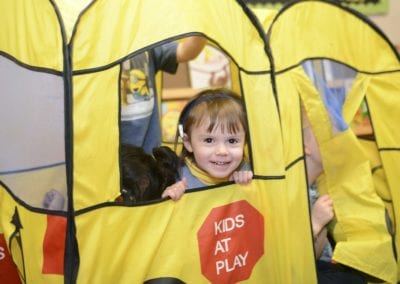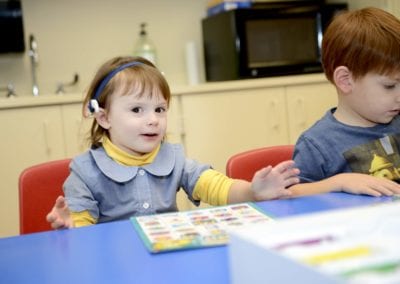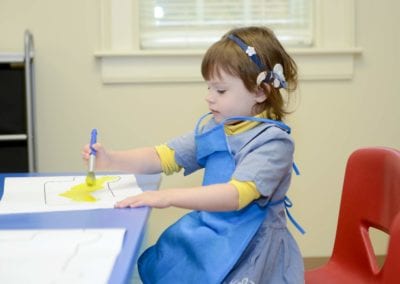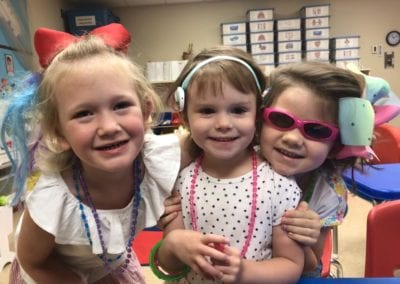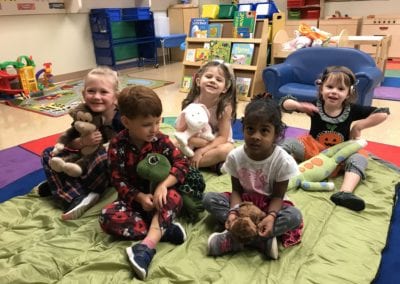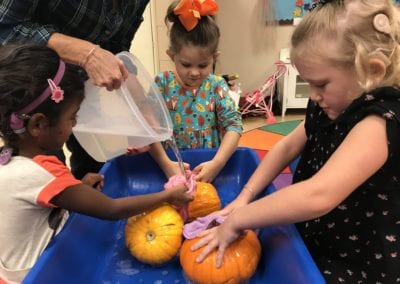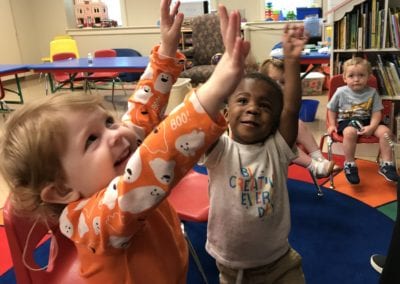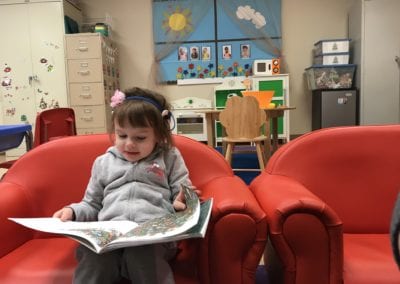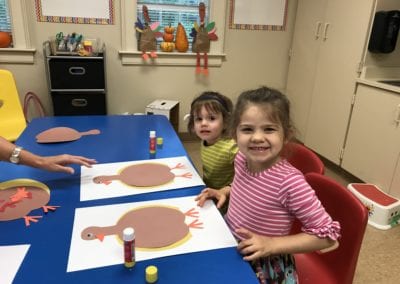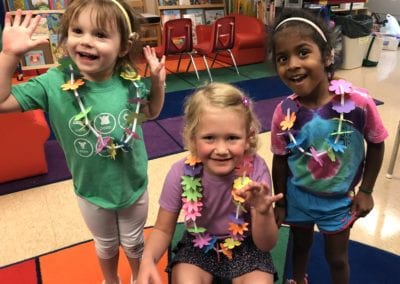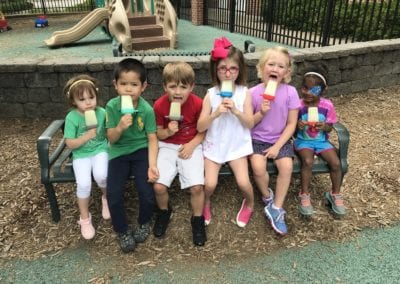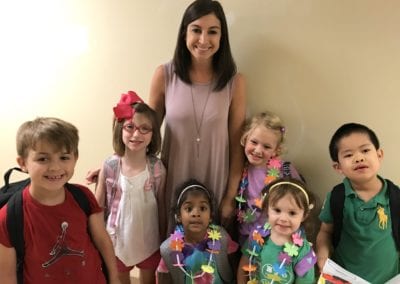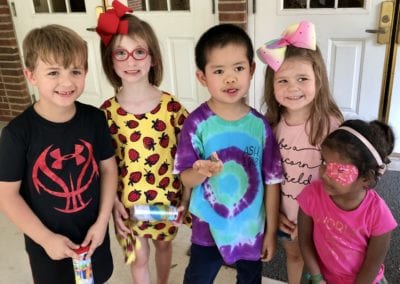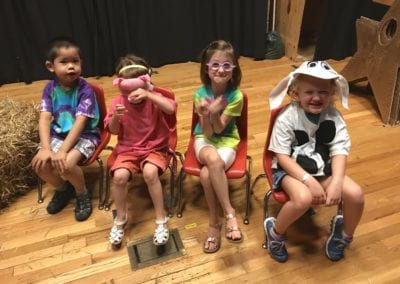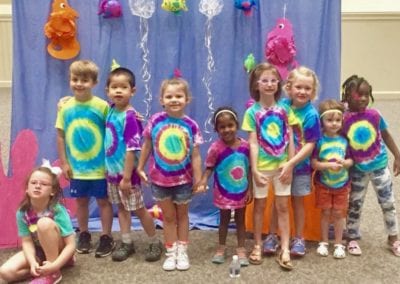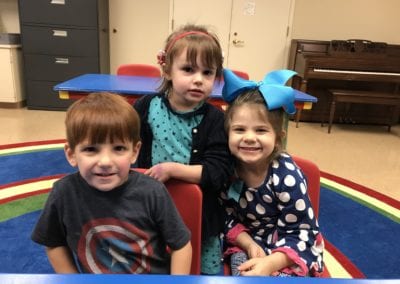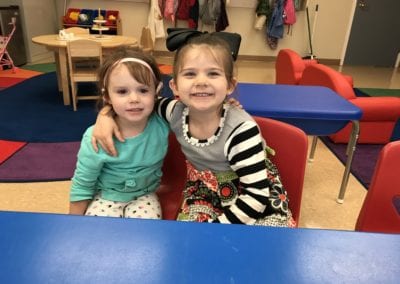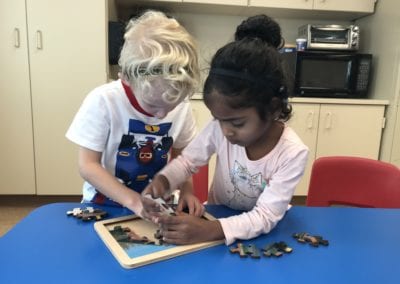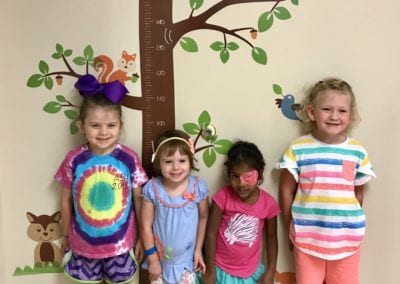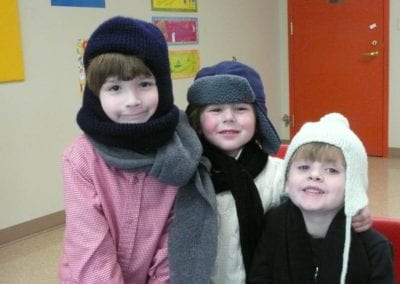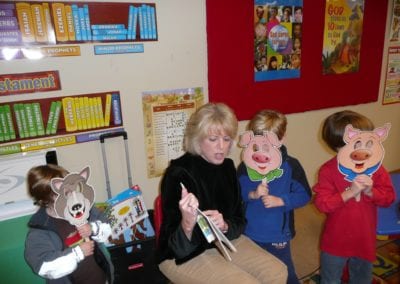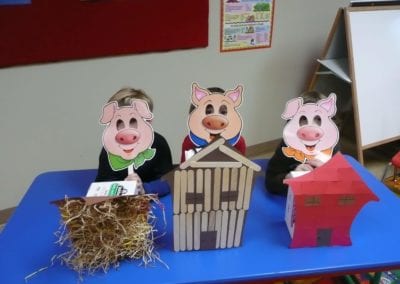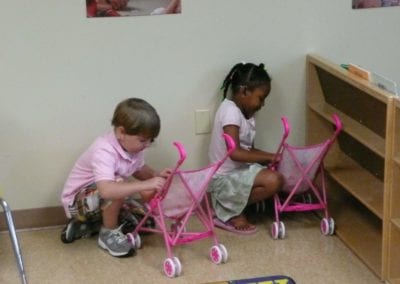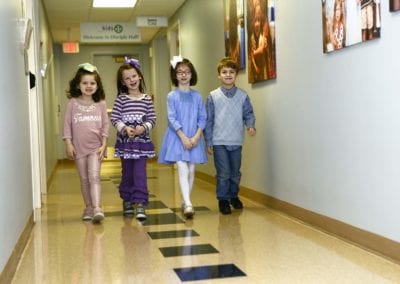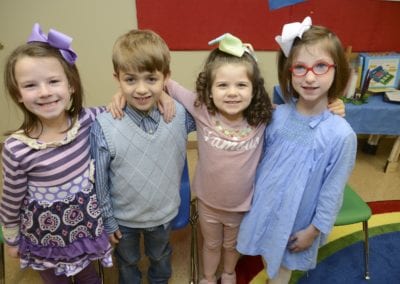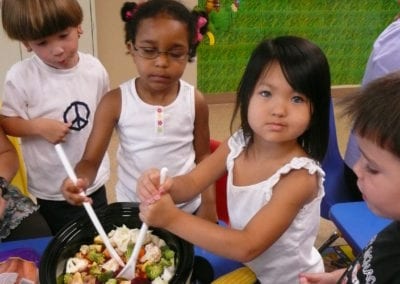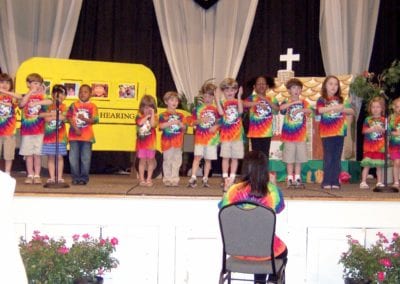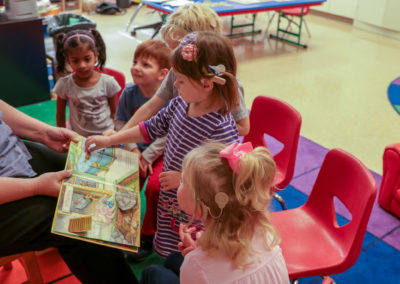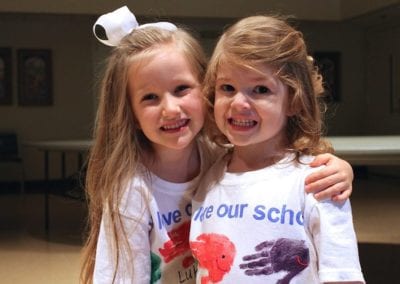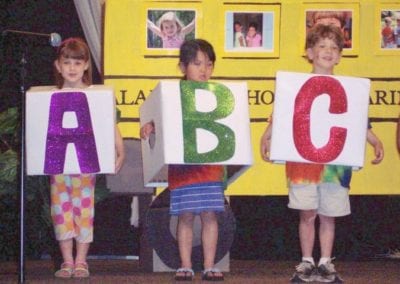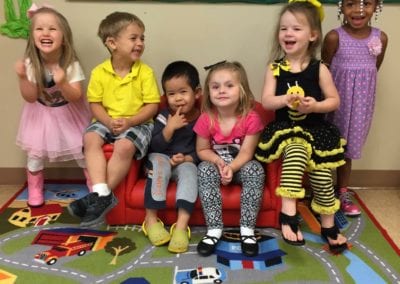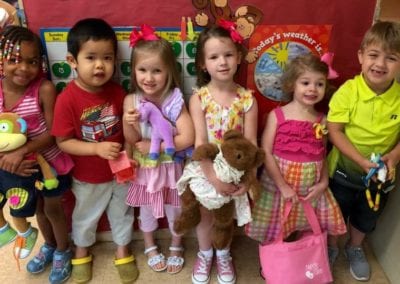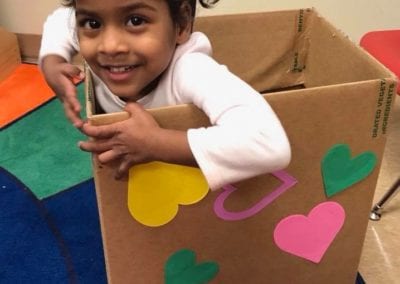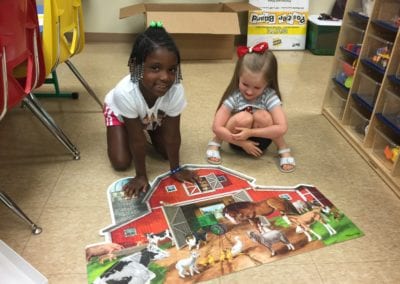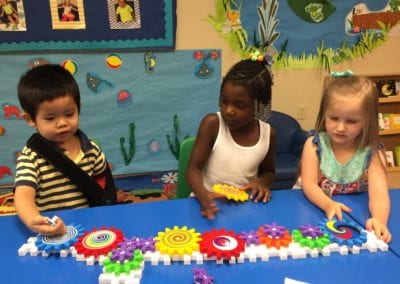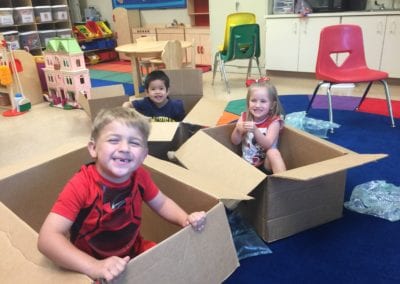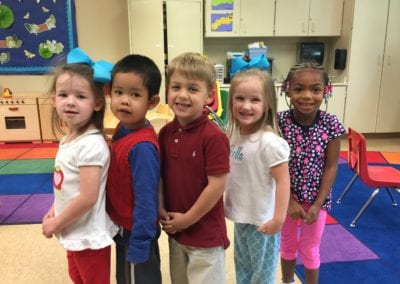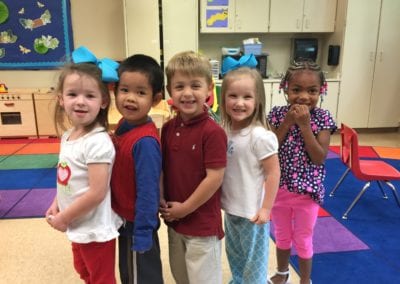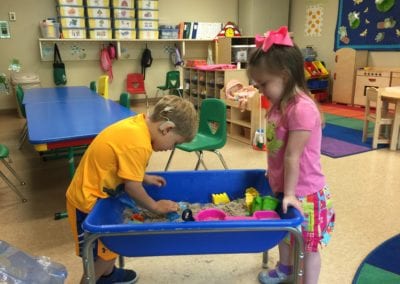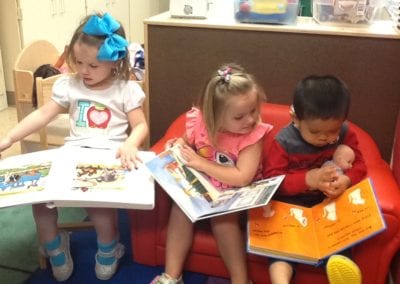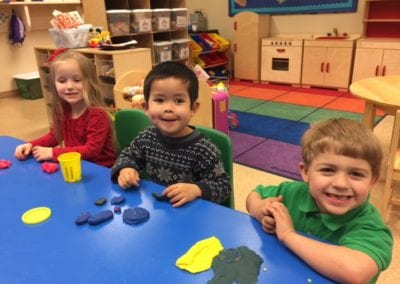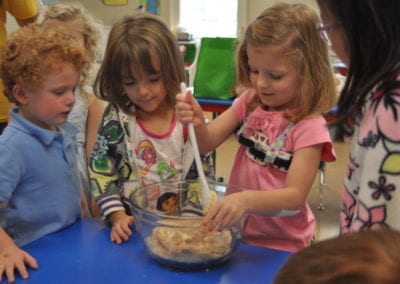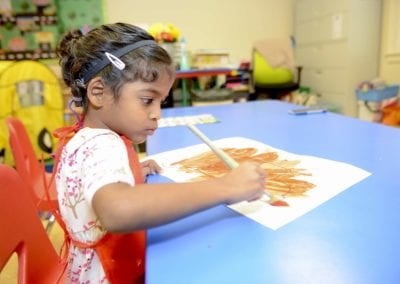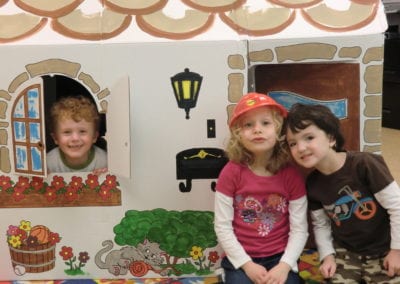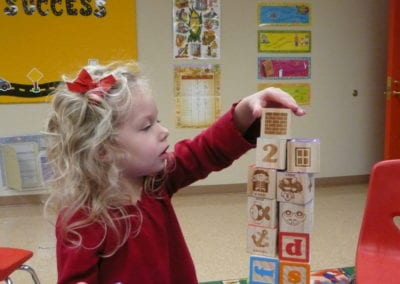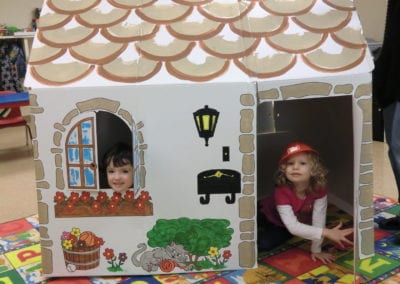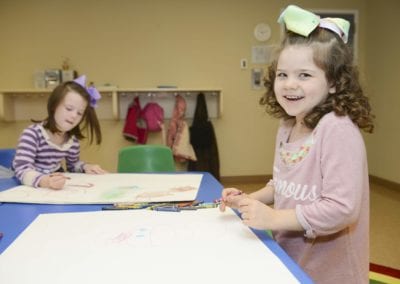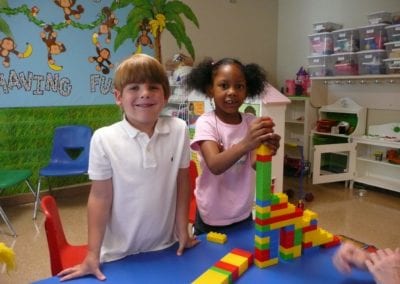Learn about WISE
PreschoolA Preschool that Empowers
The WISE Preschool is the only school in the state of Alabama dedicated solely to teaching deaf children to speak. WISE creates a learning environment that is similar to traditional preschool, while addressing the unique needs of children with hearing loss. We promote a language-rich environment where children can develop their listening, language, and speech skills in a positive and nurturing learning environment. Children are placed in small groups based upon their listening and language skills and instruction is provided by Certified Listening and Spoken Language Specialists.
Monitored for Progress
Your child’s progress is monitored on a daily basis. Each family receives an individual Auditory Verbal Therapy session during the week so that they may implement goals and practice techniques to help their child at home. Therapy objectives are individualized and family focused. Formal assessments are completed on an annual basis and your child’s skills are compared to those of children who have typical hearing, as the goal is for them to mainstream into their neighborhood schools. Parent conferences are held on a regular basis.
The Goal
The WISE goal is for our children to enter mainstream classrooms in their neighborhood schools. With early intervention and enrollment in our preschool program, most children who come to WISE are ready to mainstream by kindergarten.
The Program
The WISE Preschool program is one of only 42 Option Schools in the United States and Canada. Students from 22 different local school districts in 14 different counties have attended our program
Tuition Free
Through generous contributions from public and private entities, the WISE Preschool is offered tuition free for families. Each family pays a yearly supply fee.
Interactivity & Environment
01. Our Environment
At WISE, we believe that children learn best in nurturing environments where they feel confident and excited about school. Our small teacher to child ratio is perfect for young children with hearing loss as they make the connections between sound and meaning, speak their first words, and develop comprehension and use of spoken language. The focus of activities is based on the interest of the children and therapy goals are disguised in fun, motivating activities. The WISE environment allows children to learn, grow and develop while at play.
02. Inspire Creativity
Here at WISE, we believe in fostering creativity in a variety of ways including dramatic play, painting, drawing, art projects, building with blocks, puppet shows, and acting out familiar and imaginary stories. While engaging in creative activities, our young listeners have multiple opportunities to practice listening and speaking skills.
04. Social Skills
The work in small groups with other children gives our young listeners opportunities to develop social skills such as turn taking, sharing and compromise. Through social play, children learn to appreciate the feelings of others and how to respond during times of conflict. The unique environment at WISE fosters an acceptance of differences and compassion for others. Children identify and form friendships with others who share similar challenges.
05. Developing Academic Skills
Academic skills are encouraged during our preschool days. Children are exposed to Math concepts such as size, shape, and counting through games involving matching, sorting, making patterns, and sequencing. Fun cooking activities expose children to measuring and sequencing. Children are read to daily during individual and group time. Phonics work is included for our children as they prepare to transition into kindergarten. Through all activities children develop critical thinking and problem solving skills.
06. Gross Motor Skills
Opportunities for outside play are provided daily, weather permitting. Our outdoor playground area provides a wealth of language opportunities and allows children to develop skills in running, climbing, jumping, digging, riding bicycles and playing ball games.
WISE Families
Come join our NEST! Parents, caregivers, and siblings of children who are deaf and hard of hearing have their own needs, often which are underrepresented and not effectively addressed, yet the role of parents and caregivers is the primary determining factor in a child’s success. The way a deaf child interacts with his or her siblings can be a beneficial advantage in later developing appropriate peer interaction skills.
At WISE, we have a team of seasoned, experienced parents and caregivers who have raised or are raising children with hearing loss to speak. They understand firsthand the critical role and challenges you face, and are here to nurture, empower, support, and train (NEST) you to be effective in meeting your child’s many needs. Whether you just learned your infant was referred for follow up testing after not passing her newborn hearing screening in the hospital or your son with hearing loss is leaving for college this fall, we are here for you.
WISE Staff
Our program is staffed by Certified Speech Language Pathologists who are also Certified Listening and Spoken Language Specialists. They have over 40 years combined experience working with children with hearing loss and their families. Certified Speech Language Pathologists provide classroom support in the WISE Toddler group and Preschool classrooms. They also provide individual speech therapy sessions for children with typical hearing. Trained paraprofessionals provide classroom support and assist in preparing therapy materials. Two Certified Speech Language Pathologists volunteer in our program on a weekly basis.
Tuition Free Programs
New Friends for life
Life Changing Results
Loving and Caring Staff
Get In Touch
Location: Shades Valley Presbyterian Church
2305 Montevallo Road
Birmingham, Alabama 35223
Telephone: (205) 728-5480
Email: [email protected]
The Woolley Institute for Spoken-Language Education (WISE), is a 501 © not for profit organization dedicated to teaching deaf children to speak. We are a statewide, family focused program working in collaboration with Alabama’s Early Intervention System, local school systems, and private and public entities which advance the education of deaf children who use listening and spoken language.

